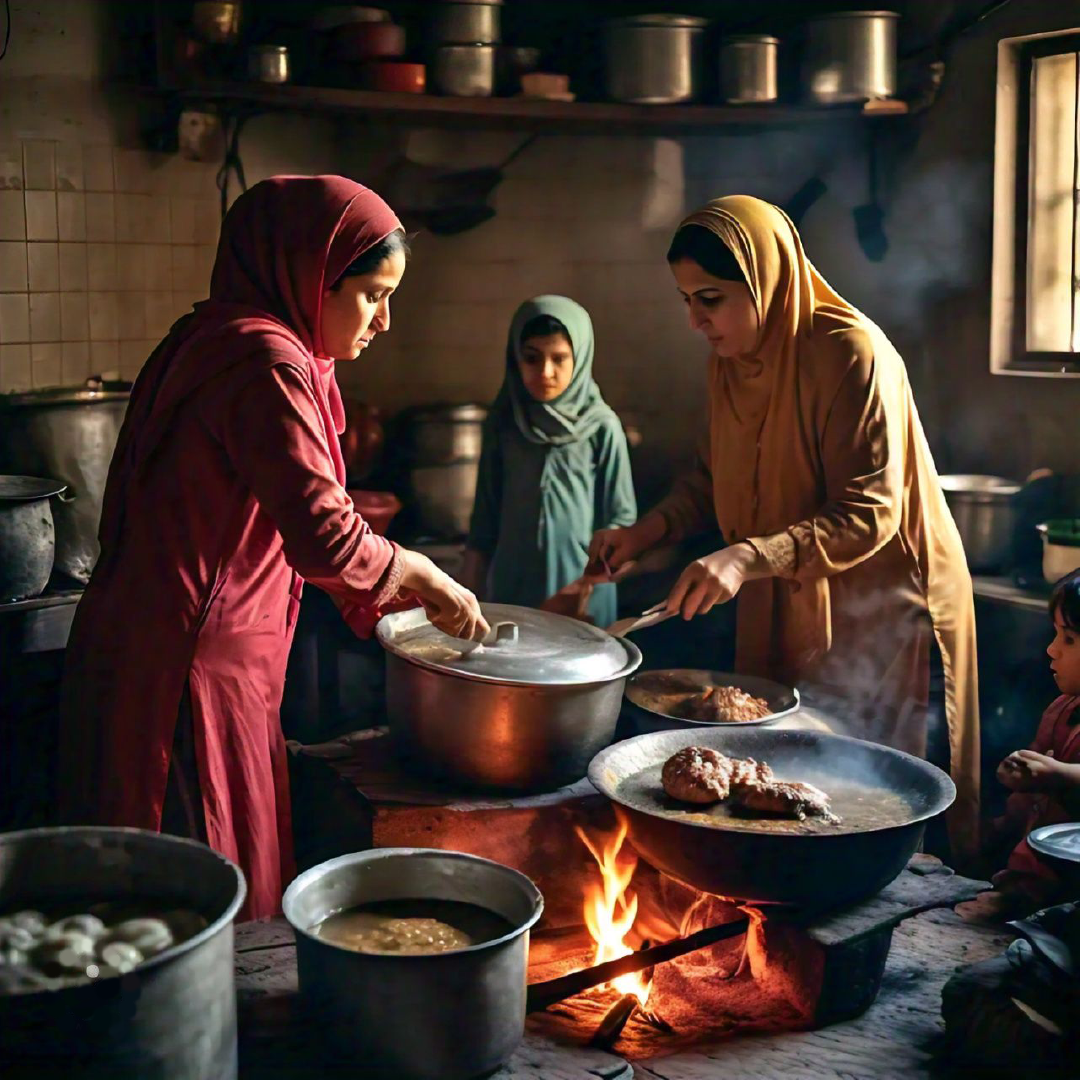Zeenat, 52, is a resident of district Nowshera. She had a respiratory condition for a long time but two months ago, one of her lungs failed. She has been under treatment in a hospital since then.
Zeenat says that they always used firewood for cooking but its smoke aggravated her breathing problem recently. “I used to cover my face while cooking because I’d be coughing all the time – but I had no inkling that the smoke was killing me from inside,” she tells Lok Sujag.
The lives of tribal women are even more challenging; first, they go to mountains in search of dry firewood. Then, they burn it for cooking.
Gul Pari, 53, lives in tehsil Landi Kotal of district Khyber. She is suffering from chronic obstructive pulmonary disease (COPD).
“I’ve been burning firewood all my life but of late, I developed a dry cough,” says Pari. “I tried all sorts of medication but nothing worked. Upon getting tested, I found out that I have COPD, an incurable lung disease.”
Gul Pari says burning dung cakes and firewood is a common practice in her area since there’s no natural gas supply.
“Long ago, a doctor advised me to stay away from fire and smoke but it was not possible. I had no choice. I have four sons and no daughter. If I don’t cook, who will do it?” she says.
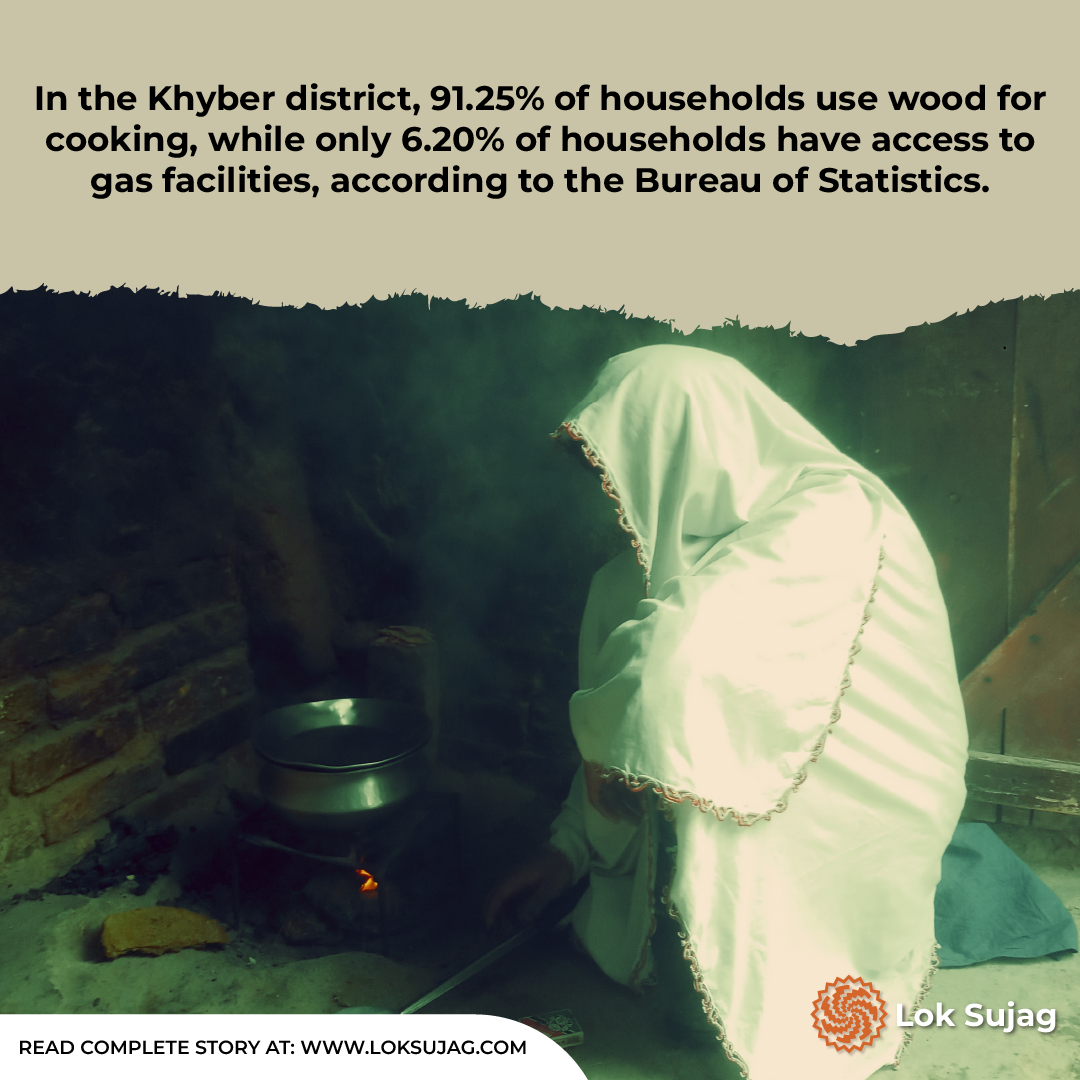
Data, released by the Pakistan Bureau of Statistics (PBS), shows that 91.25pc of households in Khyber district rely on firewood for cooking while only 6.20pc of households have natural gas facility.
Dr Sadia Ashraf, a pulmonologist from Khyber Teaching Hospital, confirms that air pollution has adverse impacts on health. She says that women are predominantly affected by indoor air pollution.
“In rural areas [in the absence of uninterrupted gas supply] women end up burning firewood, coal or dung cakes for cooking. The smoke [from fire] contains particles that cause eye, skin and lung diseases and other health complications in the longer run,” explains Dr Sadia. “When a person inhales smoke, these particles enter the bloodstream. That’s why women often suffer from cardiovascular disease, stroke, lung cancer and diabetes,” she adds.
In most rural areas, there is usually no natural gas supply to begin with but even in urban areas, some houses end up using firewood or LPG (liquefied petroleum gas) despite having gas meters/connections as there is the issue of gas outages.
Rukhsana, a 42-year-old woman, hails from Nowshera. In her neighbourhood, over 90pc households rely on dung cakes and firewood. Rukhsana says that there are gas connections in her area, but almost no gas.
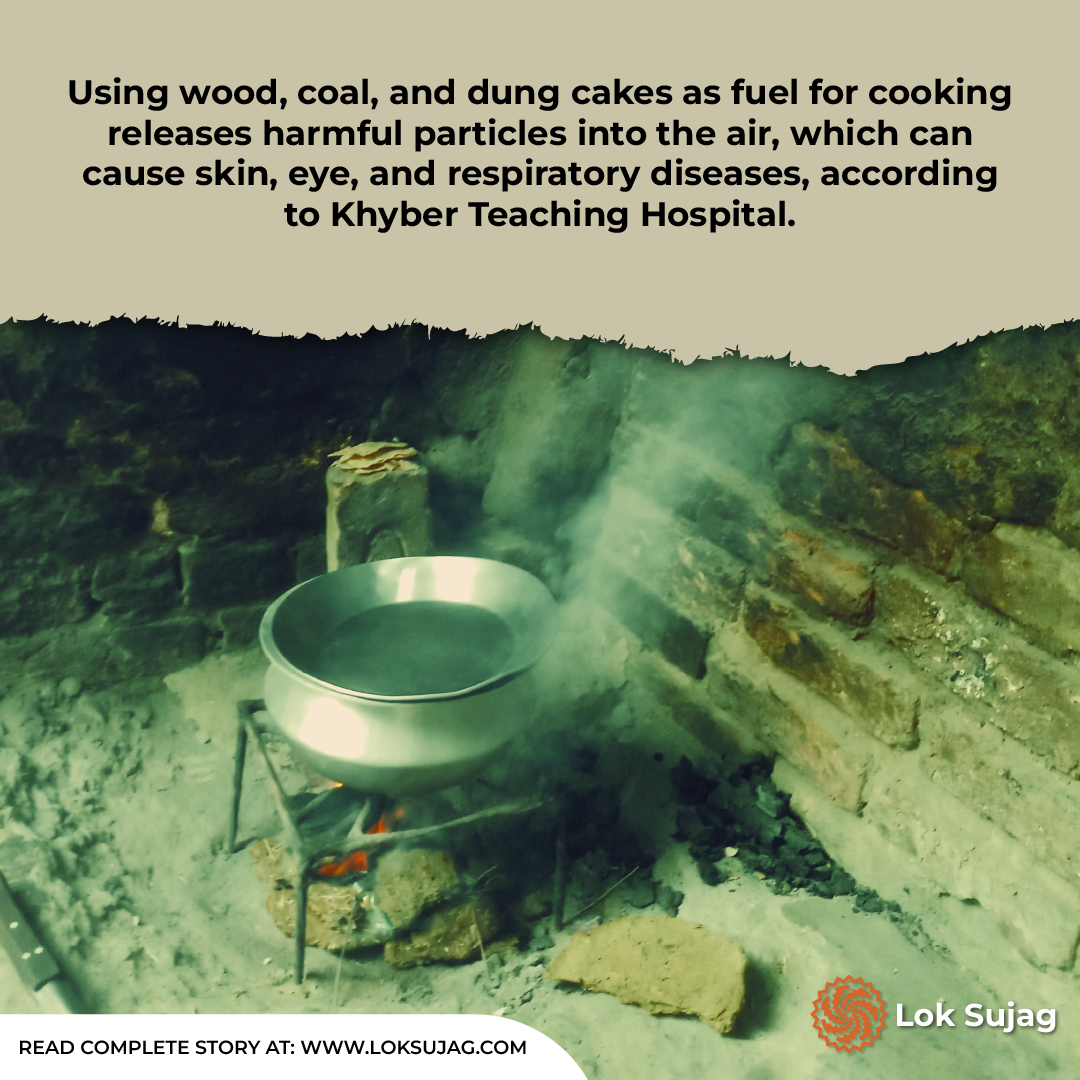
“While the rich rely on LPG gas cylinders, we [the poor] have to make do with firewood or dung cakes. But even these options are barely affordable during the winters when prices of dry fuel skyrocket,” she laments.
Rukhsana says she spends most of her time in the kitchen. “The smoke has damaged my skin. I don’t even look in the mirror anymore,” she says.
“I went to a doctor once and he asked me to stop using firewood but that was simply not an option for me,” she recalls.
A study conducted by Pakistan Institute of Development Economics in 2020 says that over 3bn people in the developing world use open fires or simple stoves to meet their cooking needs. The pollutants released when firewood, biomass and coal are burnt cause 4m deaths worldwide annually. The same study states that 94pc of households in rural areas of Pakistan burn biomass for cooking and heating. Since women are usually entrusted with the task of cooking, they are directly affected by the release of pollutants when solid biomass is burnt.
Dr Saima Abid, the founder of Public Health Association Khyber Pakhtunkhwa, says 40pc of children in Pakistan suffer from malnutrition. “One of the leading causes is fumes emitted from open stoves/fires,” she says.
“It is better for women to cook food on gas stoves. If they cannot do that and they have to burn biomass or firewood, they must wear a mask while cooking,” advises Dr Abid.
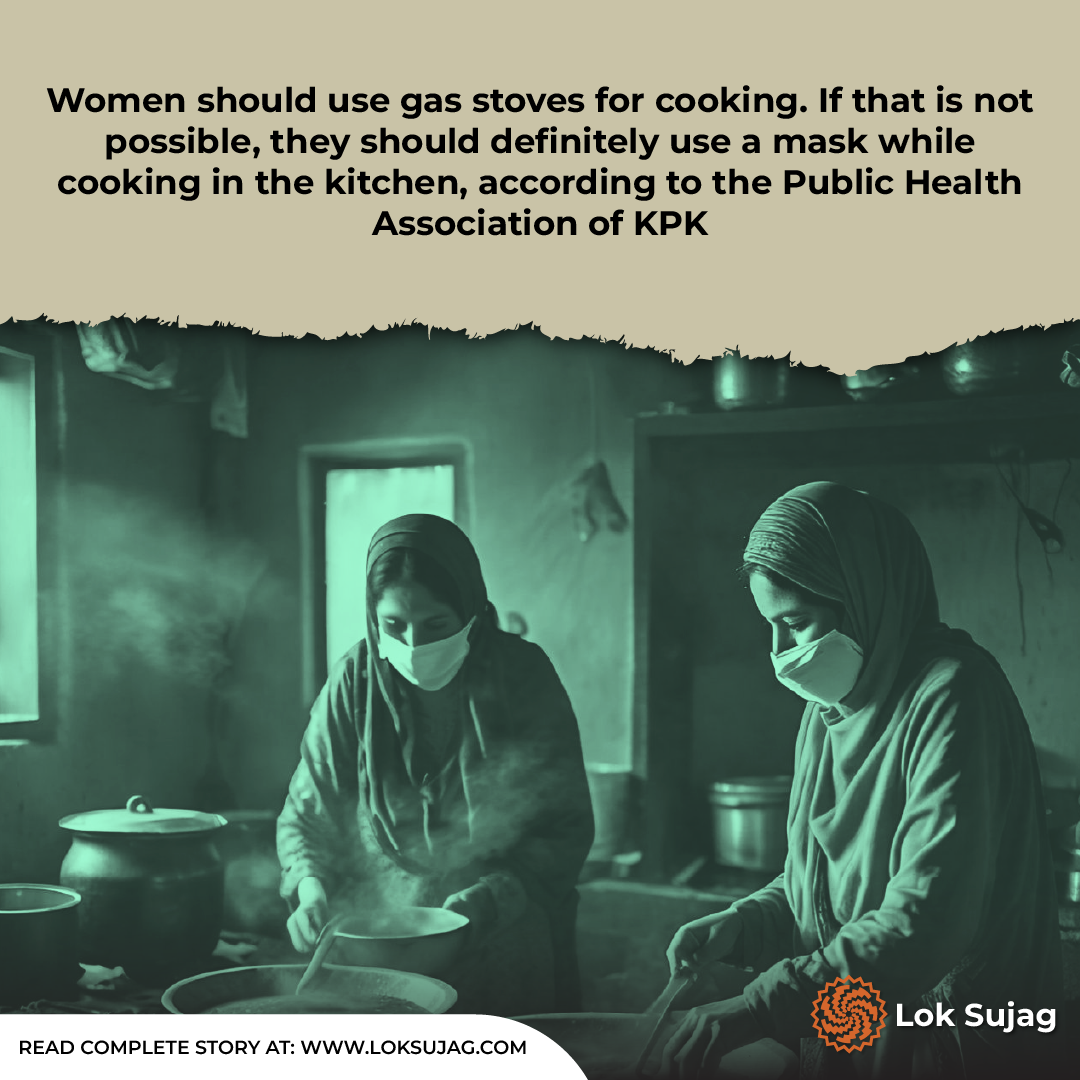
Dr Adil Zarif, a medical practitioner who also teaches in a medical college, says that air pollution is of two types; indoor and outdoor. “Using firewood or kerosene oil to cook at home is very dangerous. Upon combustion, many harmful gases, including carbon monoxide, carbon dioxide and sulfur dioxide, are released into the air. Inhaling them can be hazardous. These gases can enter the body [either inhaled or absorbed into the bloodstream] and cause neurological and respiratory diseases,” he explains.
Sajad Khan works in the Khyber Teaching Hospital, Peshawar. He says that the hospital receives over 7,000 patients in its OPD (outpatient ward) and emergency wards daily, out of which, approximately 400 suffer from respiratory problems.
“Forty per cent of these patients are children, 30 per cent are women while 30 per cent are men. About 200 of the patients suffer from skin conditions, out of which, 60 per cent are women while the remaining 40 per cent are men,” he explains.
Also read
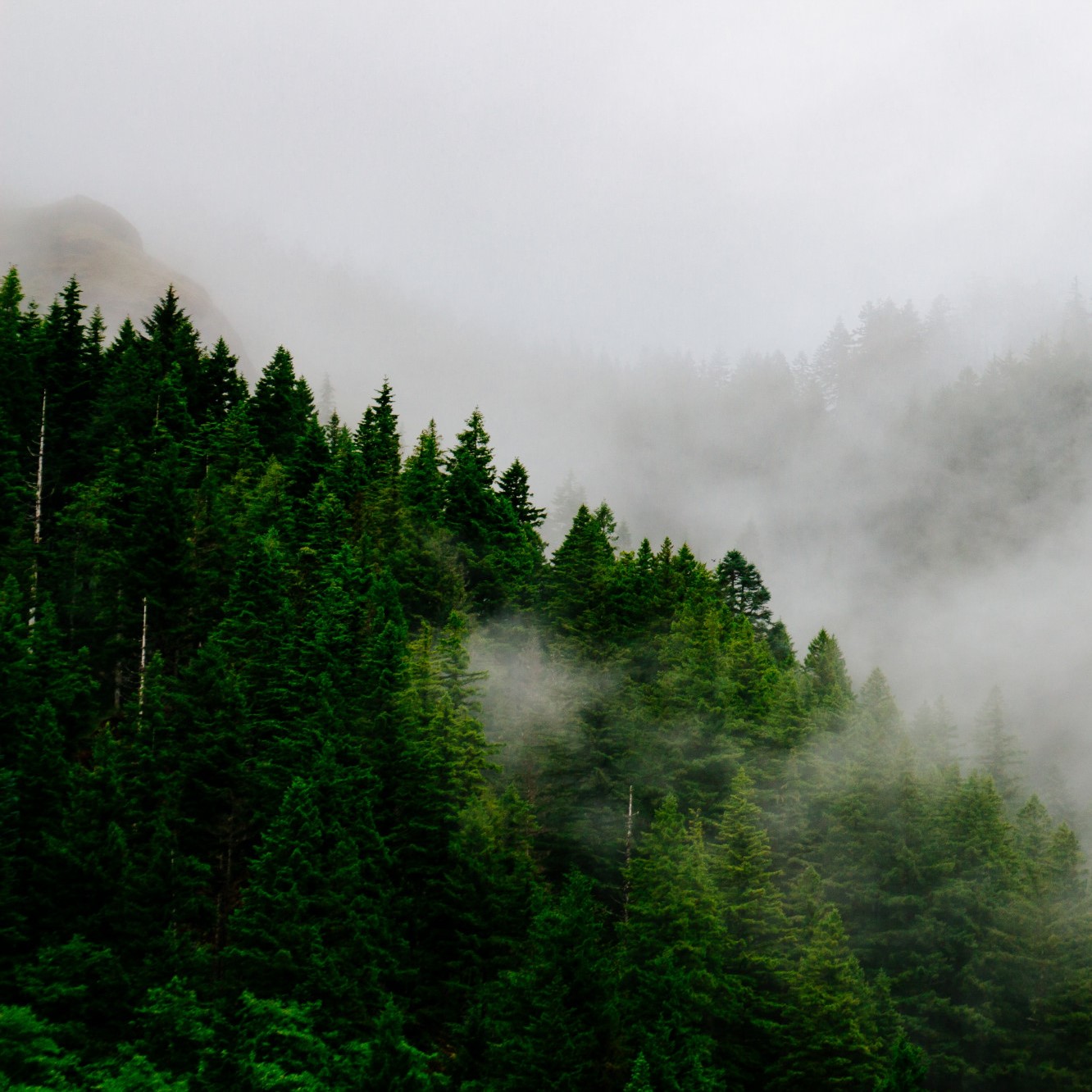
Muzaffarabad’s population faces growing threats from air pollution
Shafiq Gaggiani is a social worker and a founding member of the Peshawar Clean Air Alliance, a volunteer association working to minimise air pollution and improve air quality. He claims that the footfall of patients suffering from respiratory conditions has increased in all three big hospitals in Peshawar.
“There’s no doubt that burning firewood is not only detrimental to the health of women but also bad for the environment,” he says.
People all over the world are switching to electric stoves but in a country like Pakistan where both gas and electricity utilities are scarce, there is an even greater need to consider alternative sources of energy. Biogas could be one of them and it can be produced from animal waste, agricultural waste, sludge and treated sewage. Compared to natural gas, biogas is a more eco-friendly option as well.
Published on 1 Jun 2024
